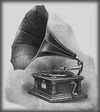 The “artifacts rule, digital drools” crowd rears its head again. This time it’s Greg Kumparak on Silicon Valley news site Pando Daily, who opines that nobody will care about inheriting digital content (the post is about music, but the same arguments should apply to any form of digital media) from their parents because they’re only bits, not things.
The “artifacts rule, digital drools” crowd rears its head again. This time it’s Greg Kumparak on Silicon Valley news site Pando Daily, who opines that nobody will care about inheriting digital content (the post is about music, but the same arguments should apply to any form of digital media) from their parents because they’re only bits, not things.
Passing your iTunes collection down to your kids isn’t the modern day equivalent to your dad passing his vinyl collection down to you.
Once you take away the physical element*, there is no sense of nostalgia inherent to that file itself. While there may be many a memory associated with a specific album or song, any copy-of-a-copy-of-a-copy that you hand down holds no more sentimental value than a copy of that same song sitting on YouTube. You’re not giving them something of yours, but a distant manifestation of something you paid for.
Once again, it seems the artifactualists fail to make the distinction between the artifact and the content. When I play a CD or record, I do it to hear the sound that comes out, not to admire the weight and heft of the plastic disc as it goes around and around. When I read a book, I read it to feel the words hitting my brain, not to massage my fingers with the fibrous texture of wood pulp or exercise my arms with the heft of a chunk of dead tree.
So why on earth would any adult who grew up listening to his parents play some particular music only want to be able to hear that particular music again if it came from a plastic disc? Why would someone whose parents bequeathed to him a love of certain books not want to be able to read those books again no matter the format? Granted, in many cases those kids will already have brought their own copies of the stuff they really love, but I can’t imagine them not being happy to listen to or read the stuff they haven’t.
Journalist Adam Tinworth agrees:
To say that it’s a physical object that is most resonant of a deceased person is arrant nonsense. The most important thing is the choices they made, and that digital music collection is a set of those choices made manifest. I can click on that playlist, click play, and be taken back to my parents’ house in Suffolk in an instant.
And this is part of why DRM is so obnoxious. Whether we buy a printed book or an electronic one, it would be nice to be able to pass it on to our progeny (assuming we have any) after we die.































All music and books are experienced in the present. What is odd is that they come to us from other periods near or far off. This very diversity of experiencing now and sourcing across time and cultures adds to meaning. Sometimes you can tell by a turn of phrase or rhythm that the encounter is displaced. A physical format can authenticate your suspicion. If you care.